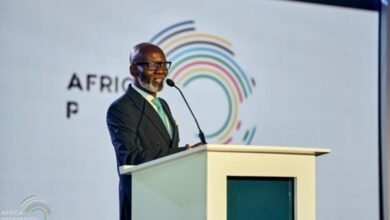Amid the COVID-19 pandemic and the Russian-Ukrainian crisis, which continue to affect the global economy, Africa is now a fertile ground for foreign direct investment (FDI). This is particularly in energy and mining resources, which are abundant in the continent. But the recovery must be coupled with by bold government decisions. These are the key conclusions of two recent reports, the “FDI Standouts Watchlist 2023” and the African Development Bank’s “2023 Africa’s Macroeconomic performance and Outlook.”
By Bernard Bangda
Major economies from the Middle East and north Africa (MENA) region are expected to carry the strongest investment momentum into 2023, according to the recently published “FDI Standouts Watchlist 2023.” Rising commodity prices in some areas, and a strong reform cycle in others justify these projections, as well as major projects in the energy and metals sectors.
« 2023 will be the year of rebound in foreign direct investment on the continent »
In a context of major energy and food security risks, this upward trend will be observed in some sub-Saharan African countries. Analysts, including the CEO of Development Reimagined, Hannah Wanjie Ryder, believe the International Monetary Fund (IMF) is wrong in announcing an extremely negative outlook for this part of the continent. This is based on the fact that four sub-Saharan African countries (Senegal, the Democratic Republic of Congo (DRC), Rwanda and Niger) will be among the 10 fastest growing countries in the world in 2023. Hannah Wanjie Ryder notes that « on average, their growth will out-pace pre-COVID levels. “She advises investors to “consider African markets in 2023, even if they’ve never heard of them before.”
These analyses boost the hopes of African leaders that 2023 will be the year of rebound in foreign direct investment on the continent. The energy and mining sectors are those chosen to benefit from the funds received. This expected breath of fresh air will make people forget that most African countries went through a difficult year in 2022. A year marked by acute financing problems for some states and a strong inflationary surge on almost the entire continent. Indeed, especially in sub-Saharan Africa, more than half of the countries experienced double-digit inflation. As a result, the uncertainty in the business climate has put a damper on growth. It also deterred foreign investors.
« Africa’s economic growth will outpace global forecast in 2023-2024”
This optimistic outlook is confirmed by the African Development Bank (AfDB) biannual report entitled “2023 Africa’s Macroeconomic performance and Outlook,” released on Thursday, January 19, 2023 in Abidjan, Côte d’Ivoire, « Africa’s economic growth will outpace global forecasts in 2023-2024 ». « This growth is set to outperform the rest of the world in economic growth over the next two years, with real gross domestic product (GDP) averaging about 4% in 2023 and 2024, » the document says.
The AfDB says that “estimated average growth of real GDP in Africa slowed to 3.8% in 2022, from 4.8% in 2021 amid significant challenges following the COVID-19 shock and Russia’s invasion of Ukraine. Despite the economic slowdown, 53 of Africa’s 54 countries posted positive growth.
The confluence of multiple shocks has in no way affected growth across all five African regions. Growth was rather positive in 2022—and the outlook for 2023–24 is projected to be stable.
Africa’s pre-COVID-19 top five performing economies are projected to grow by more than 5.5% on average in 2023-2024 and to reclaim their position among the world’s 10 fastest-growing economies. These countries are Rwanda (7.9%), Côte d’Ivoire (7.1%), Benin (6.4%), Ethiopia (6.0%), and Tanzania (5.6%).
Other African countries are projected to grow by more than 5.5% in the 2023-24 period. They are the Democratic Republic of Congo (6.8%), The Gambia (6.4%), Mozambique (6.5%), Niger (9.6%), Senegal (9.4%), and Togo (6.3%).
“Bold policy actions at national, regional and global scales to help African economies mitigate the compounding risks”
However, in order to sustain these figures over the long term, as the risks of a regression are many, the AfDB calls for bold policy actions at national, regional and global scales to help African economies mitigate these compounding risks. These include a mix of monetary, fiscal, and structural policies, particularly timely and aggressive monetary policy tightening in countries with acute inflation, and cautious policy tightening in countries where inflationary pressures are low. Coordination with fiscal policy will further strengthen the levers to ease inflationary and budgetary pressures.






